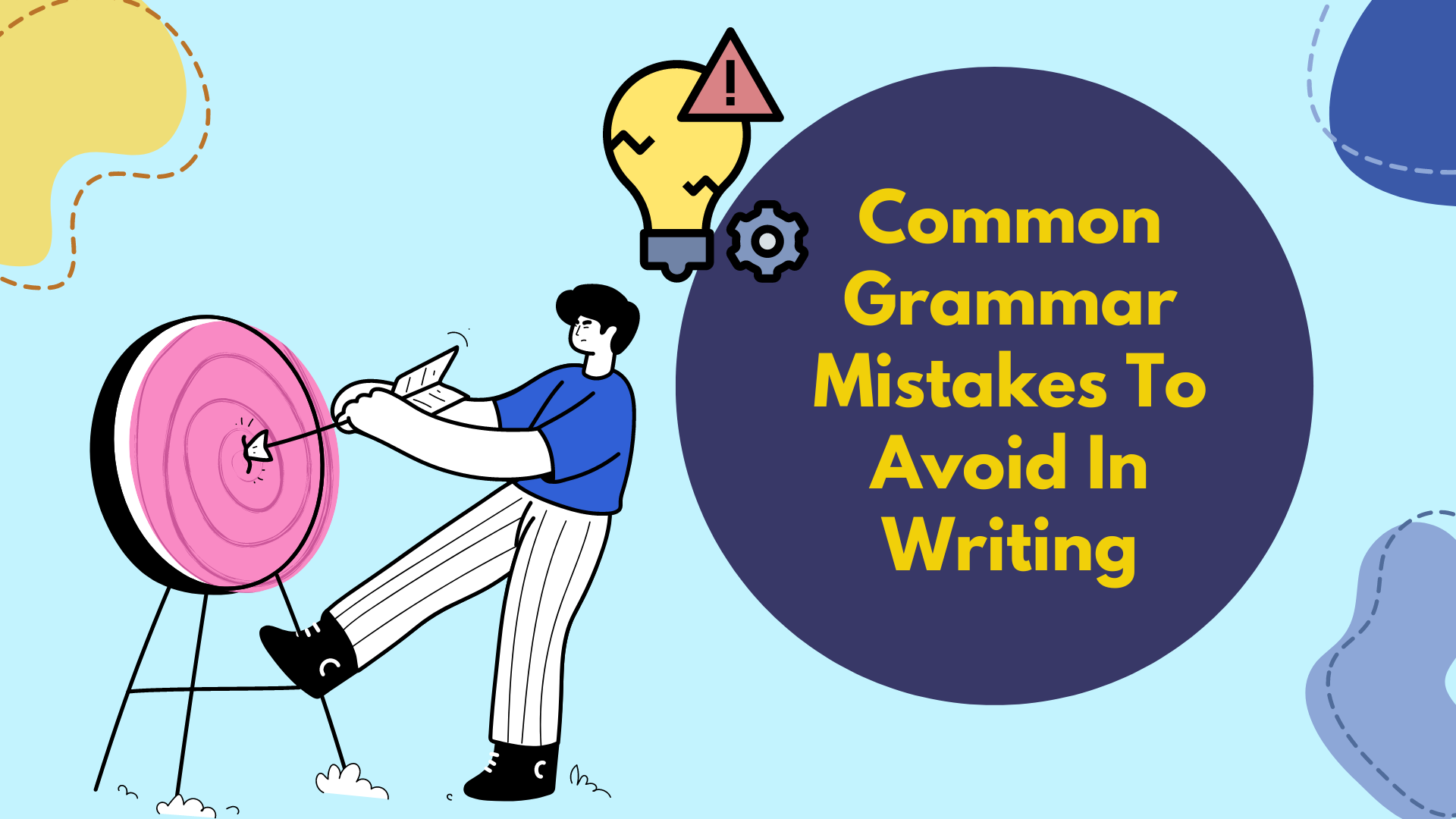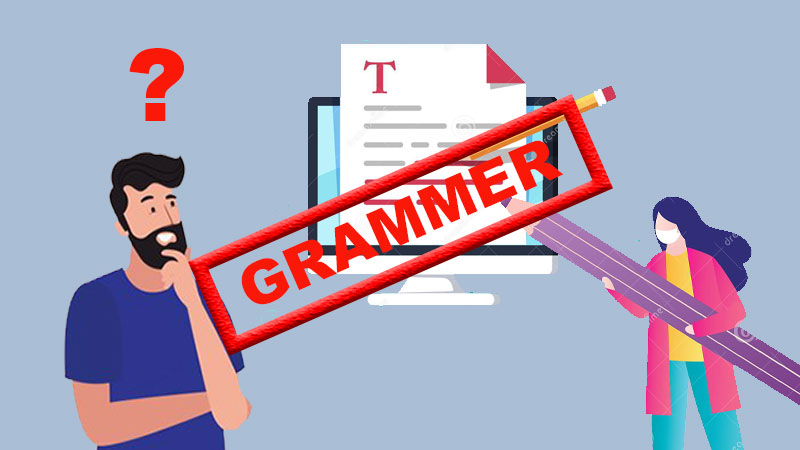
The Top 10 English Grammar Mistakes and How to Avoid Them
It’s typical for non-native English speakers to make grammar errors, especially when they’re still learning the language. In order to prevent them, it’s vital to be aware of the faults that are more typical than others. It is essential to avoid such errors, particularly for students who are preparing for their English proficiency exams like the IELTS, PTE, or TOEFL. .
Let’s first take a closer look at why it’s important to pay attention to grammar.

Why Grammar is important?
For success on English language exams like the PTE or IELTS, grammar is crucial. These exams measure your command of grammar, vocabulary, pronunciation, and comprehension in the English language. Particularly, there is a section specifically for evaluating your grammatical skills on both the PTE and the IELTS. Also, even though there isn’t a separate grammar component on the test, your command of grammar is still necessary for the reading comprehension and listening comprehension sections. Poor grammar can cause questions and responses to be misinterpreted, which can result in lower grades.
Common Mistakes to Avoid in Grammar:
There are various strategies to improve your grammar, but before I do that, I’d like to call attention to a few common errors that I regularly see students make.
1. Confusing “there,” “their,” and "they’re"
These three words may sound the same, but they have different meanings. “There” refers to a place, “their” is a possessive pronoun, and “they’re” is a contraction of “they are.” To avoid confusion, make sure you use the right word in the right context.
2. Using the wrong verb tense
There are numerous verb tenses in English, and it’s simple to mix them up. If the activity occurred in the past, present, or future, be sure to use the appropriate tense. To improve your comfort level with verb tenses, practice utilizing them.
3. Misusing apostrophes
Although they are frequently overused, apostrophes are meant to denote possession or contraction. Make sure you appropriately utilize apostrophes by placing them in contractions like “it’s” for “it is” and before the “s” for solitary possession and after the “s” for plural possession.
4. Using run-on sentences
A run-on sentence is a sentence that is too long and contains too many ideas. To avoid run-on sentences, break them up into shorter sentences, and make sure each sentence conveys only one idea.
5. Confusing “affect” and "effect"
“Affect” is a verb that means to influence or change, while “effect” is a noun that refers to the result of an action. To use these words correctly, make sure you understand their meanings and how they are used in context.

6. Using double negatives
Double negatives are two negative terms that cancel each other out and lead to misunderstanding when they are used in the same sentence. Use only one negative word in your phrase to avoid using multiple negatives.
7. Using the wrong pronoun
Using the wrong pronoun is a common mistake, especially when referring to gender. Make sure you use the correct pronoun depending on the gender of the person or object you’re referring to.
8. Using prepositions incorrectly
Prepositions are words that show the relationship between two things. Common prepositions include “on,” “in,” and “at.” Using prepositions incorrectly can change the meaning of a sentence, so make sure you use them correctly.
9. Confusing “its” and "it’s"
“Its” is a possessive pronoun, while “it’s” is a contraction of “it is.” Confusing these two words is a common mistake, but it’s important to use them correctly to avoid confusion.
10. Misusing commas
Commas are punctuation marks that are used to denote pauses in sentences, set off clauses, and divide items in lists. Make sure you utilize commas properly because doing so incorrectly can alter the meaning of a statement.
How to improve grammar?
English grammar can be improved with regular practice and exposure to the language. You should read widely, write frequently, take grammar tests and exercises, listen to English-language media, take English language lessons, and use grammar-checking software to improve your grammar. It’s critical to practice constantly applying what you learn and to have patience with yourself. You may strengthen your grammar and get more self-assurance as a writer and speaker of the English language with practice.
Written By: Ahmed Raza
Ahmed Raza is a contributing writer at Edify Group of Companies. He is also an experienced IELTS and PTE instructor. He has passion for teaching, writing and instructional design. He graduated from UET and embarked on the journey of teaching English Language tests afterwards.
How to solve Repeat a Sentence Section | Score good in Repeat a Sentence Section | PTE Speaking part
Let us help you yield your true academic potential for foreign education. To configure and discover an apt international enrolment strategy, get in touch!
- +923041111444
- info@edify.pk
- Edify Building, 3rd Floor, Madina Town Faisalabad
© 2026 Edify Group of Companies. All Rights Reserved.







